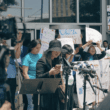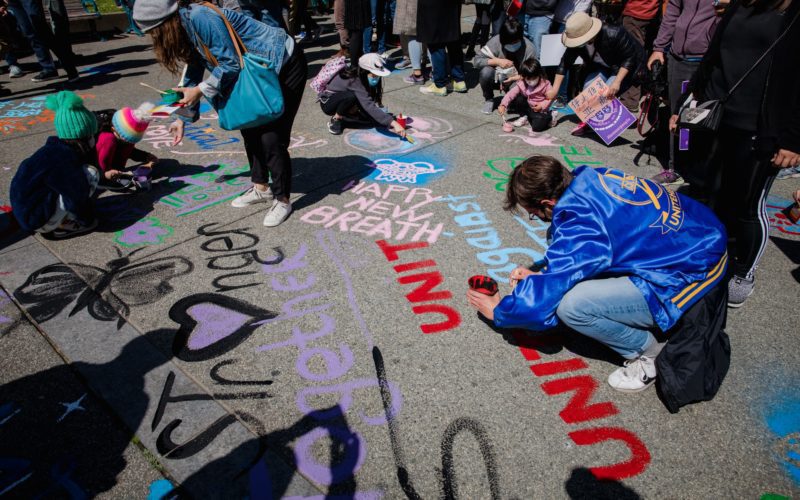Sign up here to receive The Yappie‘s weekly briefing on Asian American + Pacific Islander politics and support our work by making a donation.
Amid economic devastation and a surge in hate crimes, 2 in 10 Asian American and Pacific Islander adults are now more likely to identify with the broader AAPI community than prior to the pandemic, according to a new POLITICO/Morning Consult poll of 2,000 AAPI adults.
The wide-ranging survey conducted in June reveals fresh insights about voters’ news consumption, political beliefs, and how they’re grappling with their identities, POLITICO’s Rishika Dugyala and Beatrice Jin report—and could transform the way the largely overlooked voting bloc is mobilized.
What we learned: The chaotic 2020 cycle, driven by former President Donald Trump’s racist rhetoric and the spike in physical attacks, has unified most AAPIs around the belief that violence, discrimination, and white supremacy are major threats. 71% of respondents, including 66% of Chinese Americans, also hold Trump at least somewhat responsible for rising discrimination, POLITICO’s Matthew Choi notes.
Lessons ahead of the 2022 midterms: The poll found double-digit gaps in AAPIs’ confidence in the two major political parties, with AAPIs putting much more trust in Democrats to handle major policy priorities such as health care and the economy. But there’s hope for Republicans—many voters identify as independent, and respondents have differing views of Trump and the GOP, suggesting distance from the former president could help win over some critics. Both parties need a more aggressive and cohesive outreach strategy that doesn’t just focus on immigration or education, the survey indicates.
News consumption: AAPIs adults were more likely to get their news from paywall-free outlets like CNN or Fox News instead of subscription-based companies such as the New York Times and the Wall Street Journal, providing a partial explanation for why AAPIs have been flocking to social media for information. According to the poll, nearly a third of AAPI adults and more than half of 18-34 year olds indicated that social media has a major influence on their worldview. But fragmentation within the AAPI digital news ecosystem has made it difficult to combat misinformation, Vox’s Terry Nguyen writes.
The danger of generalization: Despite growing solidarity, grouping together over 50 ethnic groups across the diaspora is still an unwise tactic for campaigns, research shows. AAPI communities each have fundamentally different histories, experience greater income inequality, and have unique voting habits. Terms like “Asian American”—originally established by activists in the 1960s to build political power—have long faced criticism for centering East Asians and erasing the stories of Pacific Islanders, South Asians and Southeast Asians.









